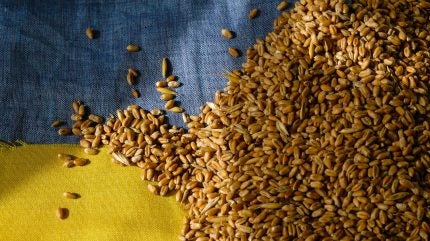
A senior United Nations official has warned food security issues are likely to be exacerbated as a result of the breach of a dam on the Dnipro river in Ukraine.
The Kakhovka dam was breached on 6 June, leading to large volumes of water surging down river causing flooding, damage to infrastructure and widespread disruption in southern Ukraine.

Discover B2B Marketing That Performs
Combine business intelligence and editorial excellence to reach engaged professionals across 36 leading media platforms.
Ukraine and Russia blamed each other for blowing the dam up.
Speaking to UK broadcaster the BBC’s Today radio programme, Martin Griffiths, UN under-secretary-general for humanitarian affairs and emergency relief coordinator, said the impact on food security for the region and the wider world could be significant.
“This is a breadbasket – that whole area going down towards the Black Sea and Crimea is a breadbasket not only for Ukraine but also for the world,” he said.
“We’re in difficulties already on food security but food prices, I’m sure, are bound to increase.”

US Tariffs are shifting - will you react or anticipate?
Don’t let policy changes catch you off guard. Stay proactive with real-time data and expert analysis.
By GlobalDataHe added: “It is almost inevitable that we are going to see huge, huge problems in harvesting and sowing for the next harvest. And so what we are going to see is a huge impact on global food security – that’s what’s going to happen.”
Russia’s invasion of its neighbour in February 2022 has already had a marked impact on food security.
Ukraine is a major player in the agri-food markets, being one of the world’s largest producers of wheat and sunflower oil.
Much of its produce was shipped through Ukraine’s Black Sea ports, with many developing nations in Africa and Asia dependent on such supplies. However, ships are only getting out as a result of an agreement with Russia – most recently renewed last month. Russia keeps threatening to cancel the deal and, even while it is in place, volumes of exports are down and there are reports of long delays.
The situation has led to Ukraine attempting to move produce out by land via its western borders
But this has resulted in a surplus of produce ending up in the markets of neighbouring countries including EU member states Poland, Romania and Slovakia.
Following them taking unilateral action to halt the flow of imported, and cheaper, imports to protect domestic farmers, the European Commission brokered a deal that allows five member states to restrict grain imports from Ukraine.
The deal was first struck in May and, following an extension, will continue until 15 September.





